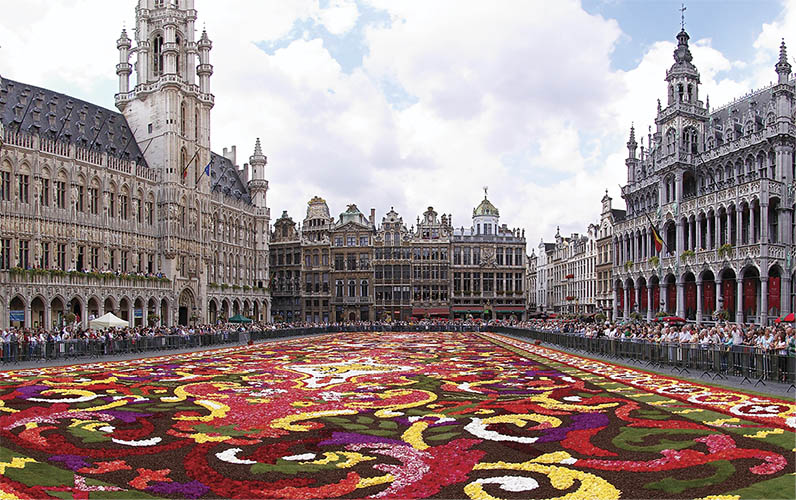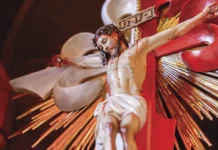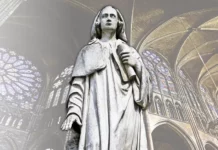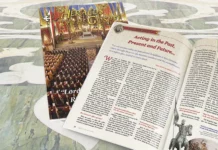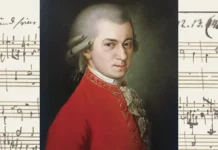Amid the hardships of this vale of tears, is it plausible to aspire to make earthly life a foretaste of heavenly Paradise? Is such a longing merely a utopian ideal, or would it be the fulfilment of God’s design in creating man to live in society?
“My Kingdom is not of this world” (Jn 18:36), the Lord said to Pilate. Yet the mandate that He gave to His Church to evangelize is aimed at implanting this spiritual Kingdom in the whole world and, in order to favour this outcome to the greatest degree, imbuing temporal society with the light of the Gospel.
When instituting the Solemnity of Christ the King, Pope Pius XI emphasized to the faithful the need for this effect of the empire of Christ – who reigns in Heaven at the right hand of the Father – on hearts, nations and the whole earth.
However, as Msgr. João Scognamiglio Clá Dias, EP, makes clear in a commentary on this liturgical commemoration, “we must distinguish between the Kingdom of Christ on this earth and that which He exercises in eternity. In Heaven, His reign is one of glory and sovereignty. Here, in time, it is mysterious, humble and scarcely apparent, since Jesus does not want to display His absolute power over all things: ‘All authority in Heaven and on earth has been given to Me’ (Mt 28: 18).”1
And Msgr. João goes on to say: “Although appearances may seem misleading, He is, in fact, the Supreme Lord of the seas and of the deserts, plants, animals, men and Angels; of all the beings that have been created or even could have been created. […] it would be erroneous to imagine that He will not reign on earth. To understand that Christ truly is King, it is necessary to differentiate His method of governance from that of the world. […] He is truly the King of the Universe and, in a very special way, of our hearts.”2
For the establishment of the longed-for Kingdom of God, it is necessary that His will be done “on earth as it is in Heaven” (Mt 6:10), as Jesus taught us. This is why Christian society, with the limitations inherent to this vale of tears, is a foretaste of the heavenly Paradise. And until this ideal is fully realized, all creation will be in expectation, as if in labour pains, according to the words of the Apostle (cf. Rom 8:22).
Within the true order, a viable ideal
In his work City of God, St. Augustine outlines the profile of a truly Christian community, in which the conditions required to establish the Kingdom of God are present. Dealing with the subject of peace as the supreme ideal of earthly and heavenly society, the Eagle of Hippo writes:
“Peace between man and God is the well-ordered obedience of faith to eternal law. Peace between man and man is well-ordered concord. Domestic peace is the well-ordered concord between those of the family who rule and those who obey. Civil peace is a similar concord among the citizens. The peace of the celestial city is the perfectly ordered and harmonious enjoyment of God, and of one another in God. The peace of all things is the tranquillity of order. Order is the distribution which allots things equal and unequal, each to its own place.” 3
As can be seen, this text proposes a perfectly viable ideal, since it is nothing other than the fulfilment of the Creator’s design in forming man with an instinct for sociability.
Throughout time, various idealist, romantic or utopian thinkers – from Plato, through Tommaso Campanella, Francis Bacon, the Count of Saint-Simon, to contemporary authors such as the post-modern Moisés Tello Palomino – have celebrated and longed for a mythical society. Some of them claimed to be based on a “Christian” worldview, although they followed their own doctrine, subjective and non-dogmatic. Eclectic or relativistic, they rejected the Revelation of the One who said of Himself: “I am the Way, and the Truth, and the Life” (Jn 14:6).
The fact is that outside the paths of the one true religion, the Catholic – founded on Revelation, Tradition and the Magisterium – one is easily derailed in the search for happiness. Moreover, every utopia lends itself to grave error and can present an extremely attractive ideal, but at the same time an unfeasible phantasmagoria. Each person imagines it according to his individual “creed”, if not to say his whim…
“There was once a time when States were governed by the philosophy of the Gospel”
It is now time to ask whether there has ever existed a collectivity in accord with the Gospel. In his encyclical on the Christian constitution of States, Leo XIII wrote in this regard:
“There was once a time when States were governed by the philosophy of the Gospel. Then it was that the power and divine virtue of Christian wisdom had diffused itself throughout the laws, institutions, and morals of the people, permeating all ranks and relations of civil society. Then, too, the religion instituted by Jesus Christ, established firmly in befitting dignity, flourished everywhere […] The State, constituted in this wise, bore fruits important beyond all expectation, whose remembrance is still, and always will be, in renown, witnessed to as they are by countless proofs which can never be blotted out or ever obscured by any craft of any enemies.”4

In fact, the Middle Ages were, at their height, the attainment of a truly Christian society. However, although the circumstances are very different, an analogous assessment can be made of what, during the 17th and 18th centuries, in South America, was called the Guaraní Republic, better known as the Jesuit reductions.
Example of authentic Christian civilization
This unique missionary institution resulted from the crystallization of the Gospel values in a people rife with sin – idolatry, polygamy, anthropophagy, drunkenness, sensuality – but in which grace later abounded even more. Under the direction of the sons of St. Ignatius of Loyola, the Guaraní began to live in society in an exemplary way, becoming accustomed to salutary fellowship, disciplined work and the practice of religion. In this way, the reductions became a model of organic and beneficial colonization, a singular encounter of cultures which, often putting aside seemingly inalienable stereotypes, worked in harmony to serve the cause of God, for the benefit of bodies and souls.

The undertaking, marvellous albeit short-lived, has deeply marked the various fields of human activity, attracting the permanent attention of scholars. Not only do an abundance of documents bear witness to it, but also its majestic ruins, some of which have been classified by UNESCO as a World Heritage Site. Furthermore, several of these reductions gave rise to prosperous cities, such as Encarnación in Paraguay and Posadas in Argentina.
The result was not, as is typically claimed, the realization of a social utopia or a communist republic, but rather of a Christian civilization – conditioned, as is inevitable and natural, by the context of the era, which eventually led to its extinction. In fact, avarice, envy and other vile interests of European courtiers and mestizos frustrated the successful accomplishment of this ideal, which would probably have allowed the Guaraní people to reach unimaginable heights.

Hearts crowned with solid evangelical virtues
An eloquent testimony of this spiritual and social conquest is a letter from the Bishop of Buenos Aires, the Andalusian Pedro Fajardo. After visiting some of the reductions in Paraguay, he wrote on May 20, 1721 to the King of Spain, Philip V: “There is so much innocence in these numerous settlements, composed of Indians naturally inclined to every sort of vice, that I believe no mortal sin is ever committed here. The care, attention and constant vigilance of the missionaries prevent even the slightest faults.”5 Are not innocence and the rejection of mortal sin on the part of a people the foundations of a truly Christian society?
Another witness, this one more recent, attests to the excellence achieved in religious celebrations on the reductions. The then Cardinal Eugenio Pacelli, future Pope Pius XII – as Pontifical Legate at the 32nd International Eucharistic Congress held in Buenos Aires – gave the following account on October 10, 1934, during the inaugural speech of that great event:
“You are not a neophyte people; you have already lived four centuries of Christianity, and those centuries are full of Eucharistic feats. We have all read amid sweet tears of emotion the narration of those simple Eucharistic feasts, especially those of Corpus Christi, which were celebrated in the former reductions. […] In the Sacred Host, Jesus feels surrounded by hearts crowned with solid evangelical virtues, as if He had come down to His garden and was caressed by the fragrance of the most beautiful flowers. There, as perhaps never before in history, the central idea of this Congress was brought to fruition: the reign of Jesus Christ, in that which this reign holds of intimate for the soul and majestic for the people. Not a single soul or institution could escape the rays of the Eucharistic sun.”6
For those who know how the splendours of European Christianity were formed over centuries of gestation under the auspices of so many Saints, heroes and geniuses, it is difficult to imagine that in a region recently emerged from barbarism wonders such as those mentioned in this speech could be achieved.

Heading towards the implantation of the reign of Jesus and Mary
In the course of history, a pendulum movement can be observed which leads humanity, after experiencing failures and suffering disillusionment, to long for a return to the opposite position. This is what Our Lord Jesus Christ teaches us, in such a poetic and touching way, in the parable of the prodigal son. And this is the aspiration of a considerable portion of humanity today, tired of the reigning chaos, even if such a yearning is not always clear in their confused and exhausted minds.
In any case, the contemporary world is necessarily headed in this direction, after turning its back on the teachings of Jesus Christ and refusing to heed the various warnings of Our Lady in her apparitions. This Mother of Mercy does not cease to help and to restore, but children remain obstinate in error. Nevertheless, the world will eventually surrender, something like Saul on the road to Damascus, in the face of the great event foretold at Fatima: the triumph of the Immaculate Heart of Our Lady, which is the establishment of a Christian society, the Reign of Christ and the Reign of Mary.
“If Christ is King by reason of His being the God-Man – having received power over all of creation from the moment in which He was begotten – then it can be deduced that it was within the most pure maternal cloister of the Virgin Mary that the sublime royal anointing ceremony which elevated Christ to the throne of natural King of all humanity took place. The Word assumed our humanity from Mary Most Holy, thus acquiring the juridical condition necessary to aptly be called King. It was also in this same act that Our Lady became Queen. In one single solemnity, we received a King and a Queen.”7
In the ardent hope for the Reign of Jesus and Mary, which will bring about a splendid Christian and Marian society, let us resolutely and firmly forge ahead towards this lofty goal, dedicated to prayer and the apostolate. ◊
Notes
1 CLÁ DIAS, EP, João Scognamiglio. New Insights on the Gospels. Vatican-Nobleton: LEV; Heralds of the Gospel, v.VI, p.485.
2 Idem, p.485-487.
3 ST. AUGUSTINE. De Civitate Dei. L.XIX, c.13, n.1. In: Obras Completas. Madrid: BAC, 1958, v.XVII, p.1398.
4 LEO XIII. Immortale Dei, n.21.
5 FAJARDO, Pedro. Lettre au roi, 20/5/1721. In: LETTRES ÉDIFICANTES ET CURIEUSES, écrites des missions étrangères. Mémoires d’Amérique. 2.ed. Lyon: J. Vernarel, 1819, t.V, p.399.
6 SERNANI, Giorgio. Dios de los corazones. Evocación del XXXII Congreso Eucarístico Internacional celebrado en Buenos Aires en 1934. Buenos Aires: María Reina, 2010, p.20.
7 CLÁ DIAS, op. cit., p.492.





